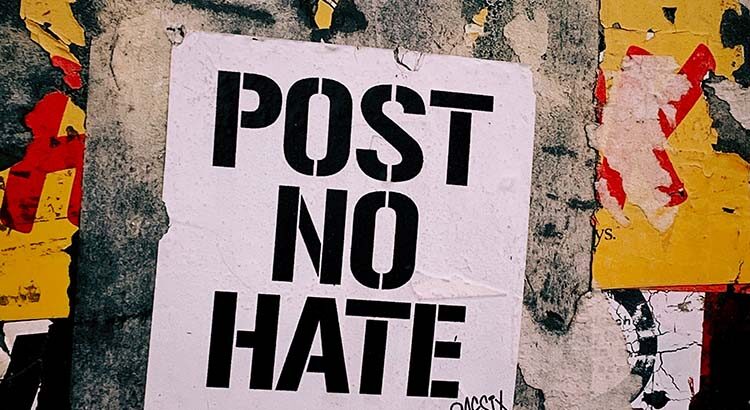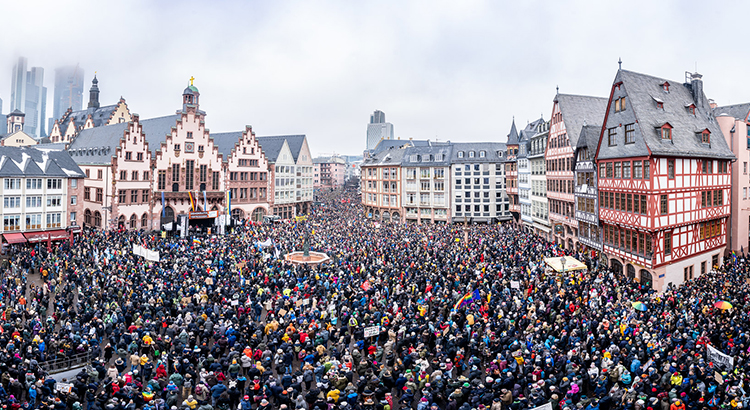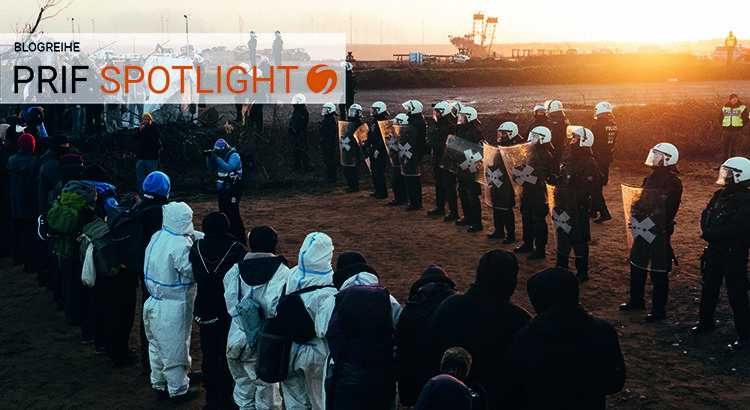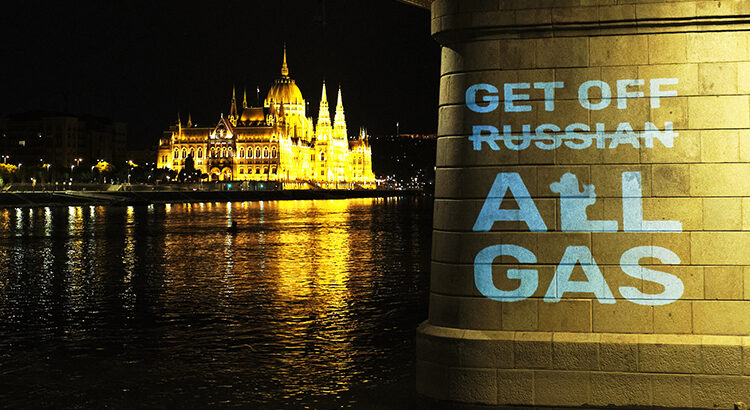Die Massenproteste gegen Rechts haben deutlich gemacht: Viele Menschen wollen dem Erstarken der extremen Rechten nicht länger zuschauen. Sie wollen eine demokratische Gesellschaft ohne Wenn und Aber. Dabei dürften die Proteste eher einen lautstarken Anfang als das Ende der Auseinandersetzungen markieren. Denn die Entwicklungen und Krisen, die der extremen Rechten den Nährboden bereiten, bestehen weiterhin. Der zivilgesellschaftliche Aufbruch ist dabei zugleich Angebot und Aufforderung an die Politik, eine andere Mitte zu finden, die sich von den nach Rechts schielenden Narrativen der „Besorgten Bürger“ löst.
Schlagwort: Radikalisierung
Die Schlüsselrolle der Schulen in der Prävention von islamistischer Radikalisierung
In Europa ist die Debatte über islamistische Radikalisierung bei jungen Menschen und wirksame Präventionsmaßnahmen in vollem Gange. Dieser Blogbeitrag beleuchtet Herausforderungen und Chancen, denen Schulen im Umgang mit Radikalisierung und Prävention begegnen. Schulen fungieren nicht nur als Bildungseinrichtungen, sondern auch als Sozialisationsinstanzen, in denen Diversität und Toleranz gefördert werden können. Doch sie werden gleichzeitig mit hohen Anforderungen konfrontiert, wenn von ihnen verlangt wird, Anzeichen von Radikalisierung zu erkennen und damit umzugehen. Dieser Beitrag betont die Notwendigkeit eines sensiblen und differenzierten Ansatzes, um Diskriminierung und Ausgrenzung in der Präventionsarbeit zu vermeiden.
Antimuslimischer Einstellungsrassismus als Faktor rechter Radikalisierung
Zum 21. September 2023 kam es zu einem großen Aufschrei in den Medien – mehr als 8% der Deutschen besitzen ein rechtsextremes Weltbild. So hatte die Mitte-Studie der Friedrich-Ebert-Stiftung einen beachtlichen Anteil und Anstieg rechtsextremer Einstellungen ermittelt. Begleitet wird dies durch aktuelle Wahlumfragen in Ostdeutschland, die einen Siegeszug der – in Sachsen und Thüringen gerade vom Verfassungsschutz als rechtsextremer Verdachtsfall eingestuften – AfD prophezeien. Doch wie konnte es zu diesem Erfolgen der extremen Rechten kommen? Eine Vermutung ist die extreme Ablehnung muslimischer Migration. Dieser Blogbeitrag beleuchtet, welche Rolle antimuslimische Einstellungen für die Mobilisierung der extremen Rechten spielen.
Umstrittene Begriffe pragmatisch definieren: Beispiel „Islamismus“
Extremismus, Fundamentalismus, Islamismus, Islamophobie oder Islamkritik sind allesamt umstrittene Begriffe, die in öffentlichen und wissenschaftlichen Diskursen inhaltlich unterschiedlich ausgedeutet werden. Diskussionen über solche „Kernbegriffe“ sind unerlässlich. Um gemeinsam wissenschaftlich arbeiten zu können, muss aber ein gemeinsames Verständnis über die verwendeten Begriffe und ihre Definition gefunden werden. Dieser Blogbeitrag plädiert für einen pragmatischen Umgang mit Begriffen und Definitionen und zeigt dies exemplarisch an dem Begriff „Islamismus“.

Islamistische Radikalisierung, Antisemitismus und antimuslimischer Rassismus: Eine neue Blogserie greift aktuelle Debatten rund um Islamismus in Deutschland auf
Reaktionen in Deutschland auf den terroristischen Angriff der Hamas auf Israel am 7. Oktober zeigten auf drastische Weise, dass extremistische, antisemitische und antimuslimische Haltungen hier weit verbreitet und mutmaßlich tief verwurzelt sind. Infolge des Angriffs ist ein massiver Anstieg antisemitischer Äußerungen, Straf- und Gewalttaten sowie eine deutliche Zunahme von antimuslimischem Rassismus und damit zusammenhängender Taten zu beobachten. Diese Tendenzen werden durch den verengten und stark polarisierten Diskurs, insbesondere in den sozialen Medien, weiter verstärkt. Unsere neue Blogserie liefert Analysen, die über die jüngsten Ereignisse hinaus dabei helfen, aktuelle gesellschaftliche Dynamiken rund um Islamismus und Radikalisierung zu verstehen und damit umzugehen.
Massaker unter Applaus: Antisemitische Reaktionen auf den Terror gegen Israel in Deutschland
Im Zuge des von der Terrororganisation Hamas als „Operation al Aqsa-Flut“ bezeichneten und von mehreren palästinensischen Terrorgruppen wie auch der Hisbollah im Libanon durchgeführten Angriffs auf Israel wurden an einem Tag mehr Jüdinnen*Juden aus antisemitischen Motiven ermordet, als an jedem anderen Tag seit der Shoah. In Reaktion auf die Angriffe und in der Folge auch auf die Reaktionen Israels, kam es vielerorts zu einer Vielzahl antisemitischer Vorfälle – so auch in Deutschland. Der Beitrag liefert einen Überblick über diese antisemitischen Phänomene in Deutschland und ihre Akteur*innen sowie über antisemitische Kontinuitäten. Die sprunghafte Zunahme antisemitischer Vorfälle erfordert konsequente gesellschaftliche Reaktionen.
Ungehorsamer Klimaprotest: Proteste werden intensiver – eine Radikalisierung in die Gewalt ist nicht in Sicht
Wie mit dem Klimawandel umgehen, das wird aktuell intensiv diskutiert. Die Klimabewegung betont die Notwendigkeit einer globalen, sozialen und ökologischen Transformation, dafür intensiviert sie den Protest auch in Deutschland. Zunehmend stehen Aktionen des zivilen Ungehorsams im Zentrum. Im Raum steht der Vorwurf der Radikalisierung in die Gewalt, aktuell ist dieser allerdings unbegründet: Die Bewegung entfaltet sich auf dem Terrain des Demokratischen, verleiht der legitimierten Forderung nach Einhaltung des 1,5-Grad-Ziels von Paris Nachdruck und skizziert Visionen aus der Krise heraus.

Verfolgung und Prävention von Hasskriminalität im Internet: Benötigt es „mehr Polizei“ in Sozialen Medien?
Der Umgang mit Hassrede, Hasskriminalität und gefährdenden Radikalisierungsprozessen im Internet bildet eine zentrale Herausforderung der Kriminalpolitik im „digitalen Zeitalter“. Innen- und Justizbehörden, insbesondere aber die Polizeien stehen in der Kritik, zu wenig gegen Hassdelikte im Internet zu unternehmen. Bemängelt werden ein unzureichender Personaleinsatz und in der Fläche mangelhafte Expertisen von Polizeibeamt*innen für das Feld der Internetermittlungen. Insgesamt fehle es an einer „digitalen Polizeistrategie“. Doch wie ist der Status Quo der Strafverfolgung von Hasskriminalität im Internet? Welche Herausforderungen stellen sich aus kriminologischer Sicht und welche Lösungsansätze gibt es, um die Strafverfolgung zu verbessern?
„Wutwinter“, heißer Herbst und Klimakrise: Ohne sozial-ökologische Vision erstarkt die extreme Rechte
Die Energiekrise stellt die Gesellschaft vor große soziale und politische Herausforderungen. Intensiv wird über den kommenden „Wutwinter“ und heißen Herbst diskutiert, während erste Proteste bereits stattfinden. Protest ist nichts Negatives und gehört zur demokratischen Willensbildung. Es gilt aber das Protestgeschehen auf den demokratischen Gehalt zu befragen und Initiativen von Links und Rechts nicht über einen Kamm zu scheren. Erneut droht, wie schon bei Pegida und den Corona-Protesten, die extreme Rechte von der gesellschaftlichen Stimmung zu profitieren. Um hier entgegenzuhalten, könnte es helfen, die Diskussionen um die Energiekrise von dem Fokus auf Russland zu lösen und umfassender im Kontext der Klimakrise zu verhandeln.
As You Like It: User Types in Digital Gamified Radicalization Processes
Since the Christchurch attack in 2019, it is explored how games, gaming spaces, gamification, and violent extremism are potentially linked and how gaming-related content may influence digital radicalization processes. However, both the theoretical and empirical basis to understand this influence are underdeveloped. This blog post adds to the theoretical foundation of a “gamification of radicalization” by presenting five ideal user types and their potential interaction with gamified extremist content.








